IPPCAAS Analyzes the Current Status of Anticoagulant Resistance in brown Rats in China and the Evolutionary Patterns of Resistance Gene Variations
Recently, the Rodent Pest Monitoring and Control Innovation Team from IPPCAAS published a research paper titled "Vkorc1 polymorphisms of the brown rats in China: Implications for rodent management and evolutionary origin of anticoagulant resistance mutations" in Science of the Total Environment. The study analyzed the polymorphisms of the Vkorc1 gene, a target gene for anticoagulant resistance, in brown rats both in China and globally. It assessed the current status of anticoagulant resistance in China’s brown rat populations and explored the evolutionary patterns of the Vkorc1 gene mutations in rats from China and Europe.
The brown rat is widely distributed in China, except in Tibet, and was listed in the "Catalog of Major Agricultural Pest Species" by the Ministry of Agriculture and Rural Affairs in 2023. Anticoagulant rodenticides are the primary chemical agents used to control rats, but resistance has greatly impaired the efficacy of the anticoagulants. The extent of anticoagulant resistance in brown rat populations across China has remained unclear.
This study first analyzed the registration of anticoagulant rodenticides and their usage in agricultural areas in China since the 1990s. It then investigated the Vkorc1 polymorphisms in brown rats from 47 sampling sites across China. Three potential resistance-associated mutations were found in three populations, while no resistance-associated mutations were detected in the remaining populations. This indicates that first-generation anticoagulants, which are less toxic, are still effective in most populations. However, in populations where resistance mutations have already emerged, timely control measures are necessary to prevent the further spread of resistant strains.
East Asia, including northern China, is suggested to be the ancient origin of brown rats. By analyzing the Vkorc1 gene polymorphisms in global brown rats, the researchers ruled out the hypothesis that the various anticoagulant resistance mutations found in European rats originated from East Asia. Instead, they propose that the Vkorc1 mutations in Chinese brown rats are likely novel mutations that emerged after the use of anticoagulant rodenticides.
IPPCAAS is the primary contributor to the paper. Wang Xiuhui, a postdoctoral researcher, is the first author, and Song Ying is the corresponding author. The study involved contributions from Qin Meng from National Agro-Tech Extension and Service Center, Ma Xiaohui, Sun Ting, Wang Dawei, Li Ning and Liu Xiaohui from IPPCAAS, Jing Meidong from Nantong University, and Wang Deng from China Agricultural University. The research was supported by the National Natural Science Foundation of China, the Beijing Natural Science Foundation, and other projects.
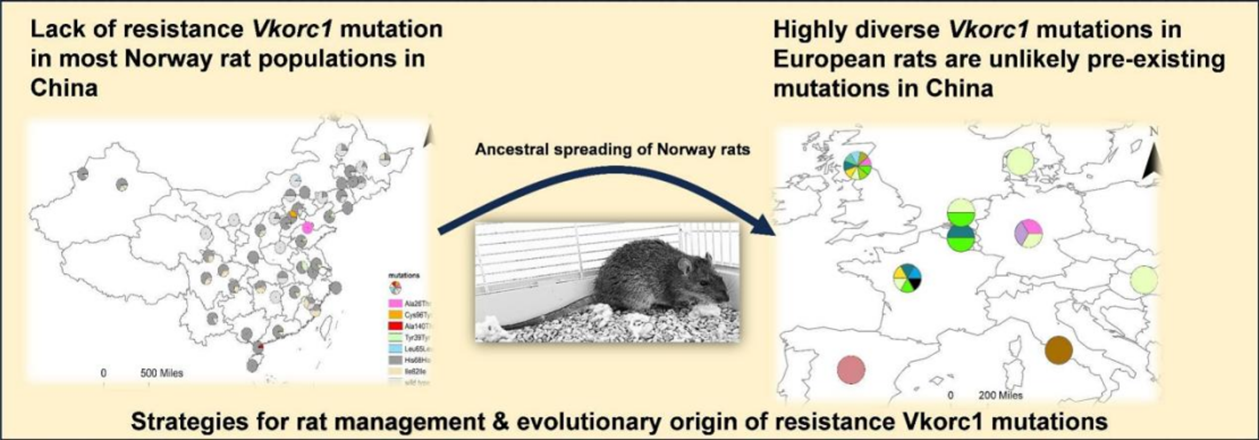
-
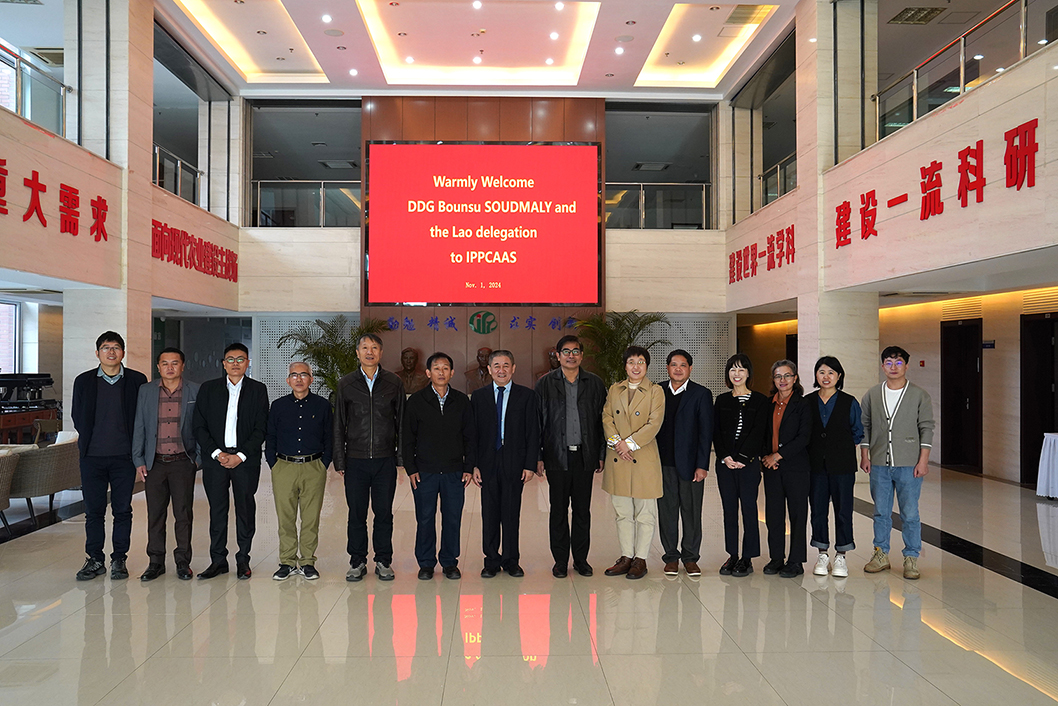 The Lao PDR-China Joint Laboratory for Plant Protection holds technical seminar at IPPCAAS
The Lao PDR-China Joint Laboratory for Plant Protection holds technical seminar at IPPCAAS -
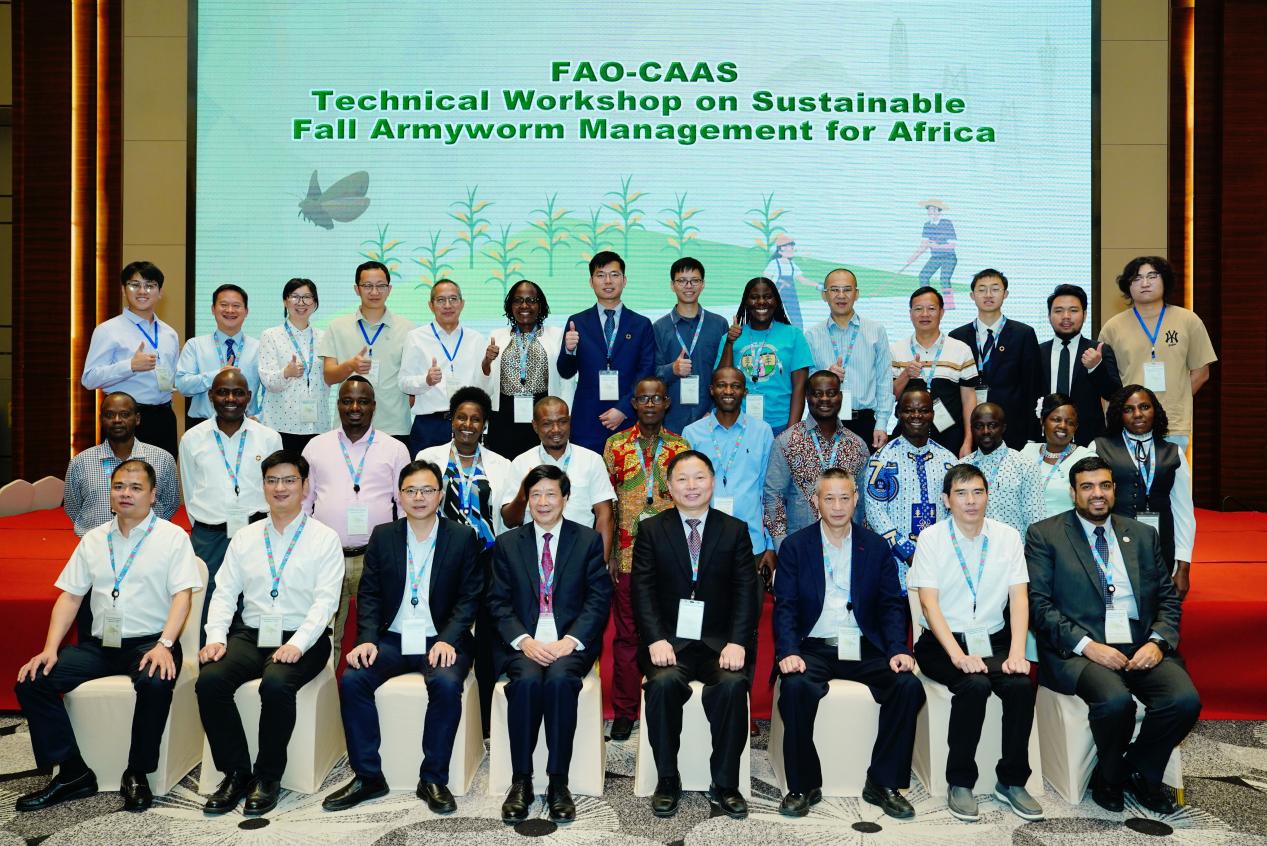 IPPCAAS Successfully Organized the FAO-CAAS Technical Workshop on Sustainable Fall Armyworm Management for Africa in Guangdong
IPPCAAS Successfully Organized the FAO-CAAS Technical Workshop on Sustainable Fall Armyworm Management for Africa in Guangdong -
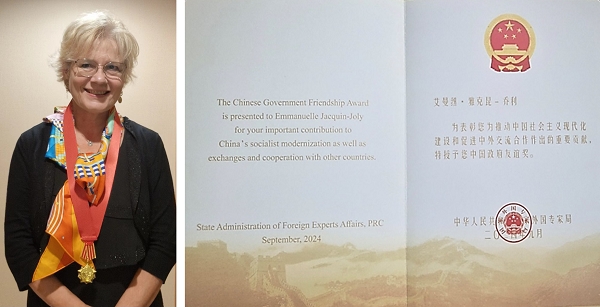 IPPCAAS Hosts Symposium for CAAS-INARE International Joint Laboratory for Plant Protection to Congratulate Professor Emmanuelle Jacquin-Joly on Receiving the Chinese Government Friendship Award
IPPCAAS Hosts Symposium for CAAS-INARE International Joint Laboratory for Plant Protection to Congratulate Professor Emmanuelle Jacquin-Joly on Receiving the Chinese Government Friendship Award -
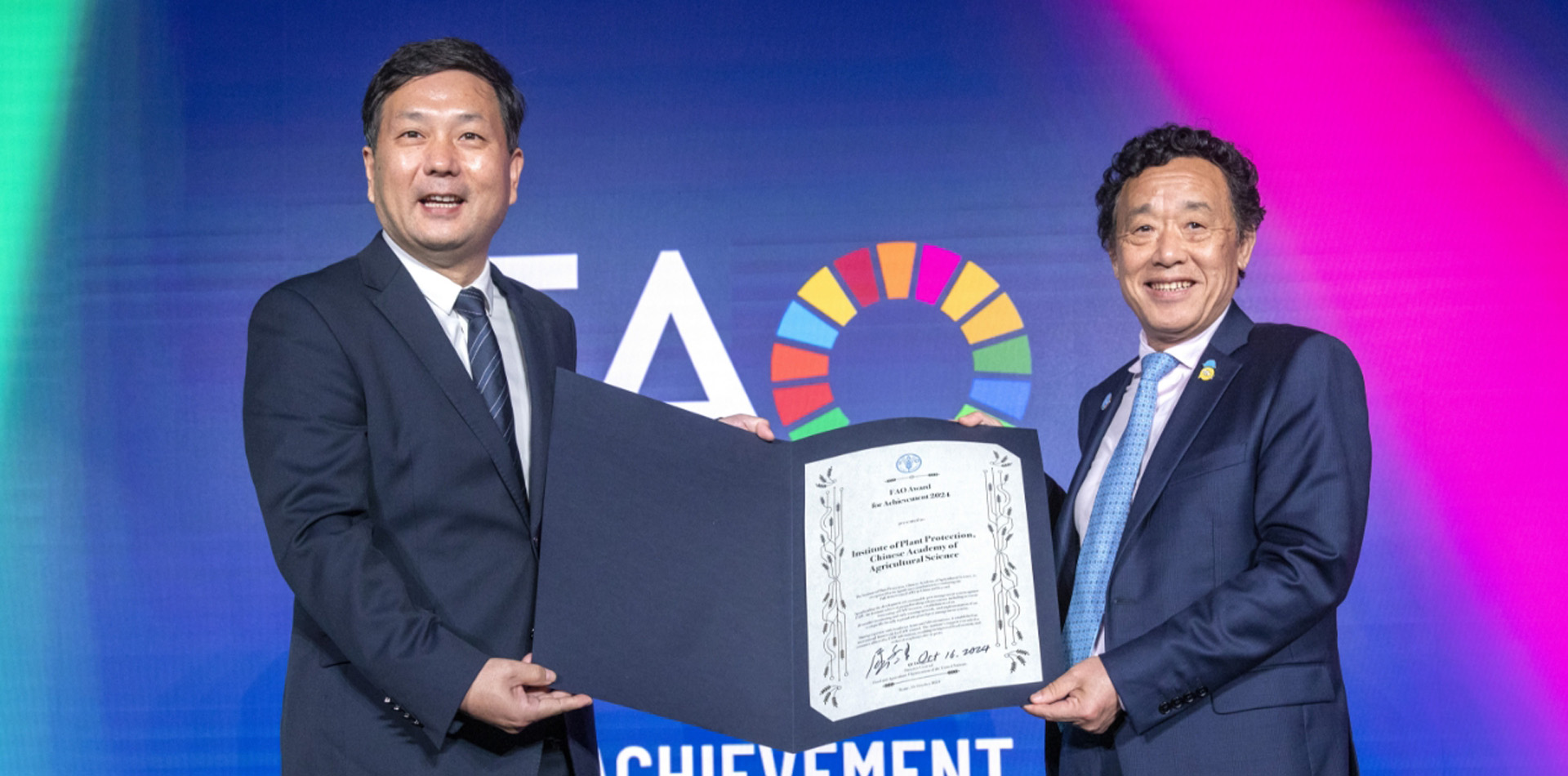 IPPCAAS Wins the 2024 FAO Achievement Award
IPPCAAS Wins the 2024 FAO Achievement Award
